| Article ID | Journal | Published Year | Pages | File Type |
|---|---|---|---|---|
| 3019719 | Revista Española de Cardiología Suplementos | 2006 | 7 Pages |
Abstract
The presence of heart failure increases the risk of atrial fibrillation, a condition which in turn aggravates heart failure. At any point in time, a large percentage of patients with heart failure are affected by atrial fibrillation. Its clinical characteristics change over time and vary according to the individual patient. It worsens patients' symptoms, adds a further a complication to their illness, and is problematic for both patients and physicians. It is estimated that 50% of patients with heart failure will experience atrial fibrillation, and will require treatment to prevent embolism and relieve symptoms. The ability of drugs to interfere with specific signal transduction pathways is promising. To date, the most effective agents appear to be angiotensin-converting enzyme inhibitors and angiotensin-II receptor antagonists. These compounds reduce oxidative stress, restore the nitric oxide level, inhibit the formation of fibrous tissue, and can ameliorate pulmonary vein ectopy. Uncovering the, as yet unknown, genetic factors involved could have significant implications. Better understanding of the relevant molecular biology is essential. This could lead to new treatment regimes or to hybrid therapy with a combination of antiarrhythmic and non-antiarrhythmic drugs, which could improve treatment effectiveness.
Keywords
Related Topics
Health Sciences
Medicine and Dentistry
Cardiology and Cardiovascular Medicine
Authors
Antonio Hernández Madrid, Gerardo Moreno, Jorge Rondón, Walter MarÃn, Miguel Castillo, Oscar Bernal, Belén Tarancón, Alejandro Amador, Concepción Moro,
